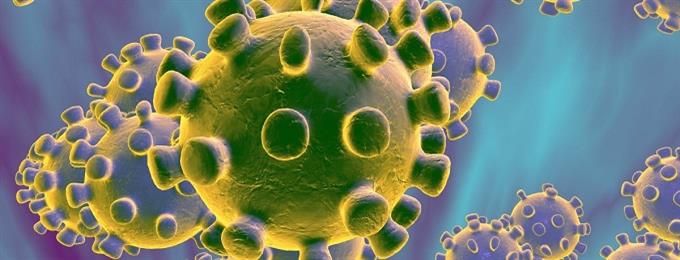The EC and the Innovative Medicines Initiative gear up funding for research to combat COVID-19. Many international funders, incl. the Swiss SNSF, follow suit.
Researchers worldwide are concentrating their efforts towards gaining knowledge on the new virus SARS-CoV-2 and combating COVID-19 as the disease spreads massively across the globe. These activities also call for targeted funding and the European Commission (EC) reacted fast. Already in January, the EC published a dedicated emergency call with a €10 million budget within the current framework programme for research and innovation, Horizon 2020 (H2020). In response to a high number of 91 applications, the EC managed to scale up the funding to €47.5 million and can now support 17 projects including 136 research teams from across the EU and beyond. Swiss researchers particpate in six of the projects. The projects, which are already negotiating contracts and will start soon, cover the areas of vaccine development, rapid point-of-care diagnostics, new treatments by accelerating the development of drugs already in the pipeline and the identification of new molecules potentially active against the virus as well as improving epidemiology and public health. Among the projects is also Exscalate4CoV, a coalition of three of the most powerful supercomputing centres in Europe with some further partners. The team uses supercomputers in the search of therapies and is matching digital models of SARS-CoV-2 proteins against molecules from existing compound databases. To supplement their compound pipeline, they now invite organisations to submit proposals for screening of their compounds.
On 3 March, also the Innovative Medicines Initiative (IMI), a public-private partnership between the EC and the pharmaceutical industry under H2020, launched its own targeted fast-track call to develop treatments and diagnostics. The call has a volume of €45 million stemming from the EC through the H2020 budget, which will be matched with a similar amount of funding from the industrial partners based on selected proposals. The call remains open until 31 March. The scope of the call is intentionally broad, because a novel virus causes COVID-19. However, preventive vaccine development is excluded.
The EC is also calling for start-ups and SMEs with technologies and innovations that could help in treating, testing, monitoring or other aspects of the COVID-19 outbreak to apply urgently to the next round of funding from the European Innovation Council. The deadline for applications to the EIC Accelerator is 17:00 on Wednesday 18 March. All EU calls and ongoing projects related to the topic are now listed on a dedicated EC webpage.
All calls are set within the frame of measures taken by the EC to combat SARS-CoV-2 and its associated disease COVID-19. The EC has set up a response team composed of five commissioners, who will coordinate the work. Part of the team are Janez Lenarčič (crisis management), Stella Kyriakides (health issues), Ylva Johansson (border-related issues), Adina Vălean (mobility) and Paolo Gentiloni (macroeconomics). Apart from research and innovation, the team will have to deal with prevention and medical information, procurement, relief and foresight in the medical domain as well as implications on travel and transport in the Schengen area and effects on trade, industry and businesses. The response team now also received support from a scientific expert team to strengthen EU COVID-19 coordination.
The European Parliament (EP) dealt with COVID-19 in its plenary, exceptionally held in Brussels on 10 March. The Members of the EP (MEPs) expressed their appreciation for the health workers fighting the disease and called for the production of testing kits, masks and respiratory machines in the EU and their availability to all Member States. The EP also expressed its support for putting more funds into joint research to fight the virus. Some MEPs also see a need for a common risk assessment to assure that the same measures are applied to different areas with the same risk level.
The EC is by far not alone with its special funding measures for COVID-19 research. Funders and governments around the globe are mobilising money to combat the outbreak with emergency R&D funding. Among them are the Wellcome Trust and the Gates Foundation joining forces with the Credit Card Company MasterCard to speed up drug development in a ‘Therapeutics Accelerator’ and Canada is pledging C$275 million to boost global funds for crisis R&D. In the US, the National Institutes of Health (NIH) are also taking measures. The Central European Research Infrastructure Consortium (CERIC) has set up a fast track access to several of its instruments to facilitate research on SARS-CoV-2 and its associated disease. The facilities are located in Ljubljana, Graz and Krakow and researchers will be able to use them within a month after submission of their proposal. Other global players are working with European universities and research institutions towards solutions; among them the Coalition for Epidemic Preparedness Innovations (CEPI), which is expanding its investment in COVID-19 vaccine development with the University of Oxford.
The Swiss National Science Foundation (SNSF) launched its own call for COVID-19 related projects on 6 March. The call will be open for a short time only until 25 March and makes funds of CHF5 million available for contributions towards understanding the virus, and improving clinical and public health measures. Researchers at Swiss institutions in all disciplines are eligible and will receive evaluation results as early as mid-May. The SNSF asks grantees to make the data and results of their projects available to authorities and researchers worldwide without a delay after completion of the projects. This is the first time the SNSF launches a special urgent call in response to a crisis, but the experience might become useful in future similar situations.

